A VIEW FROM THE BRIDGE (opera) @ Vertical Player Repertory, Brooklyn, NY
By William Bolcom – Libretto by Arnold Weinstein – based on the play by Arthur Miller
Conducted by Peter Szep, Scenic Design by Michael Unger, Karni Dorell and Doug Campbell, Lighting Design by Ben Ehrenreich, Costume Design by Sarah Gosnell, Fight Choreography by Dan Renkin, Stage Manager – Heather Klein
Photos by Benjamin Ehrenreich
(Reviews Below Slideshow)
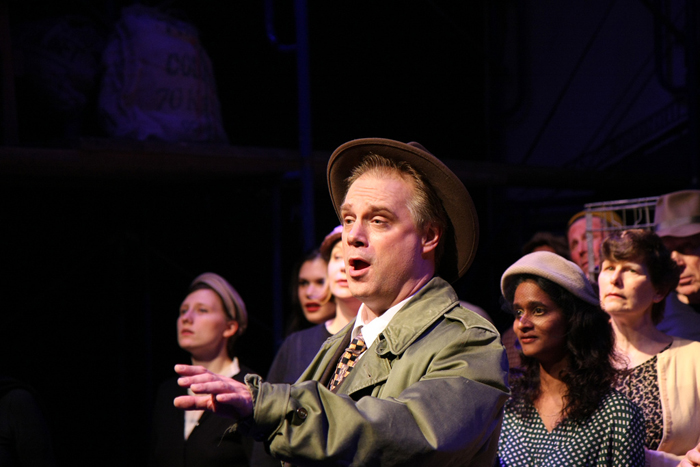



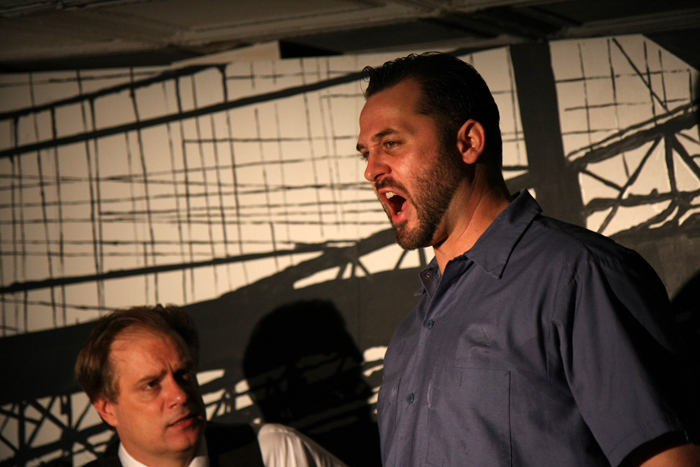

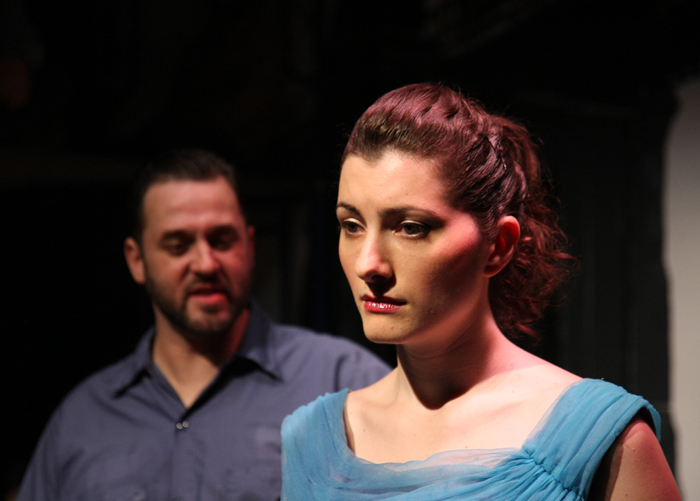
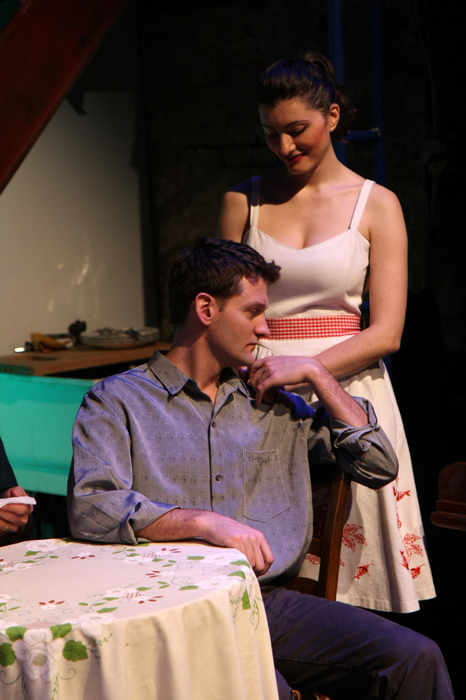
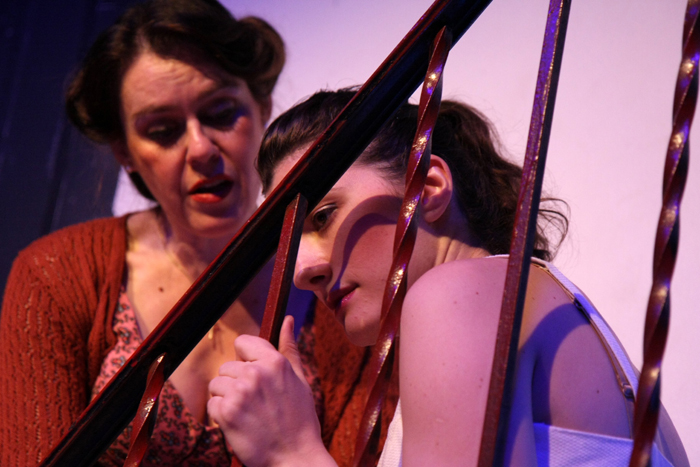

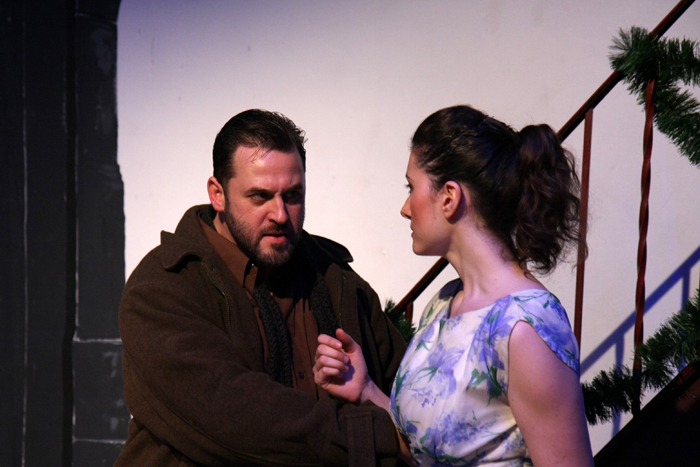
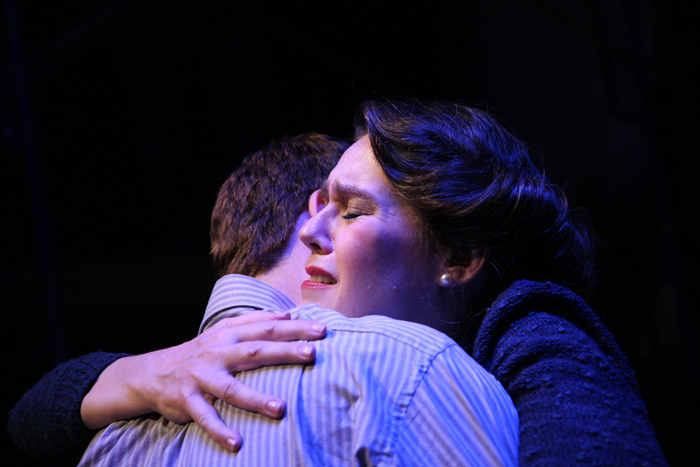
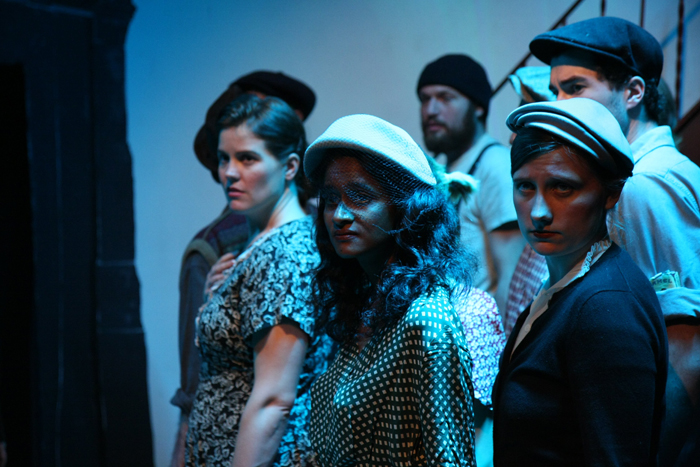
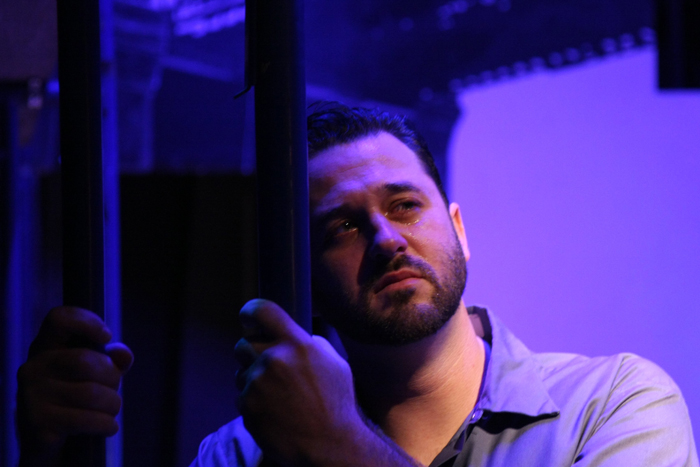
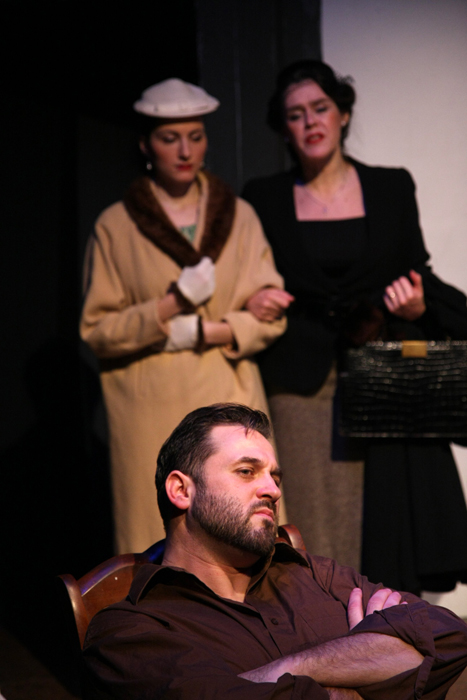

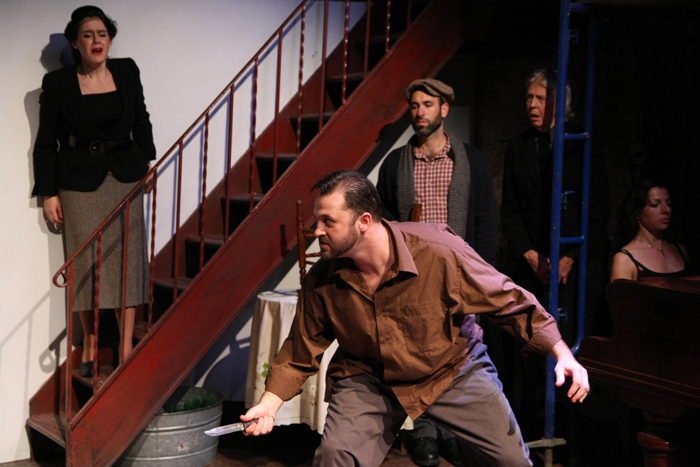



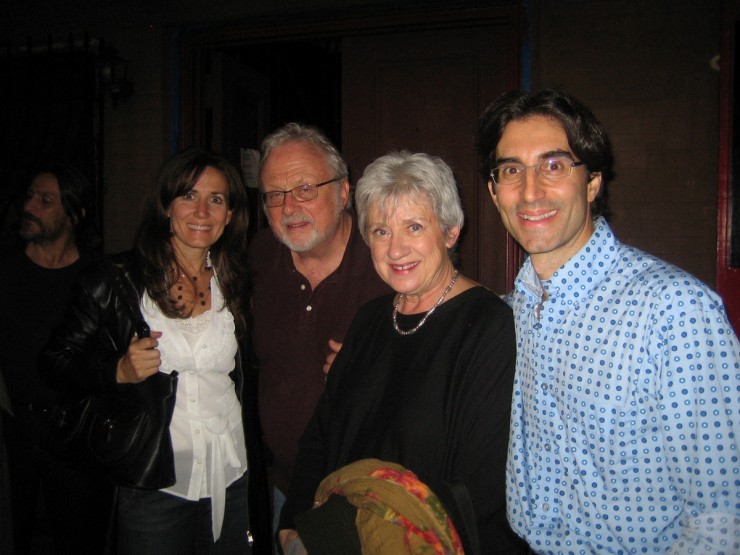
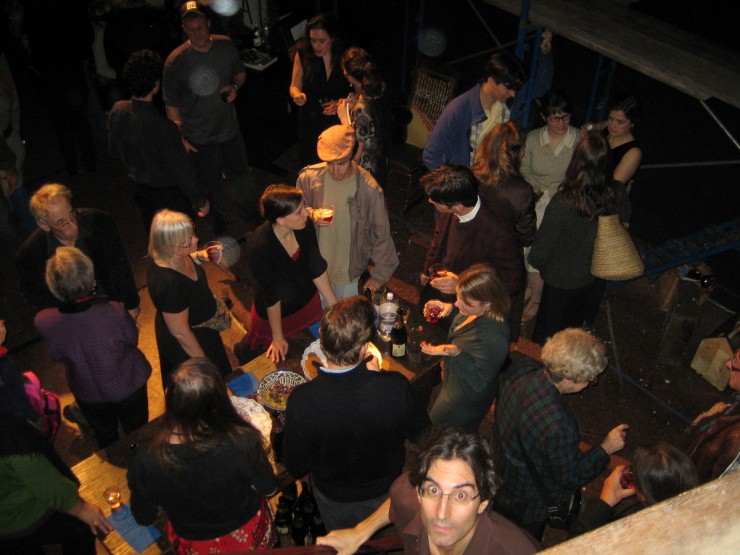
Thrilling theatre. The set made you feel scrunched into a claustrophobic kitchen to the point of explosion, just as the characters are on stage. The chorus got on and off stage in amazing style. I wish they’d give lessons on movement to the chorus at the Met. The skill with which they slide on or scuttle off into the cramped edges of the scaffolded VPR set is not the least extraordinary thing about Michael Unger’s vivid direction. The cast put over a riveting account of the play. At VPR all the voices were big and in tune and hardly seemed “operatic,” so natural and intense was the acting. – (Opera Today)
A year ago October I was brought to rehearse and to see a pocket production of an opera I composed (words by Arnold Weinstein and Arthur Miller of course), A VIEW FROM THE BRIDGE. Originally conceived for Lyric Opera of Chicago (a venue almost as large as the Met) and full orchestra, here was a tiny theater in Cobble Hill, Brooklyn that would barely hold 40 to see it, and with only two pianos. A very old friend was quite doubtful it all would work, but I insisted she come to the opening.
The Vertical Players would amaze us all, not least because of the excellent direction by one Michael Unger, with a consistently top-notch cast; the two pianists strove valiantly to make up for 78 players in size and largely succeeded. But what particularly impressed my doubting friend was that the impact of the opera survived even in such conditions. I’ve been the victim of two misconceived productions because of directors’ notions indulged in which screw up poor Arthur’s play and my opera. What I admired was the clarity and modesty of Unger’s production, which gave value to the writing in both music and word. (From Composer, William Bolcom)
